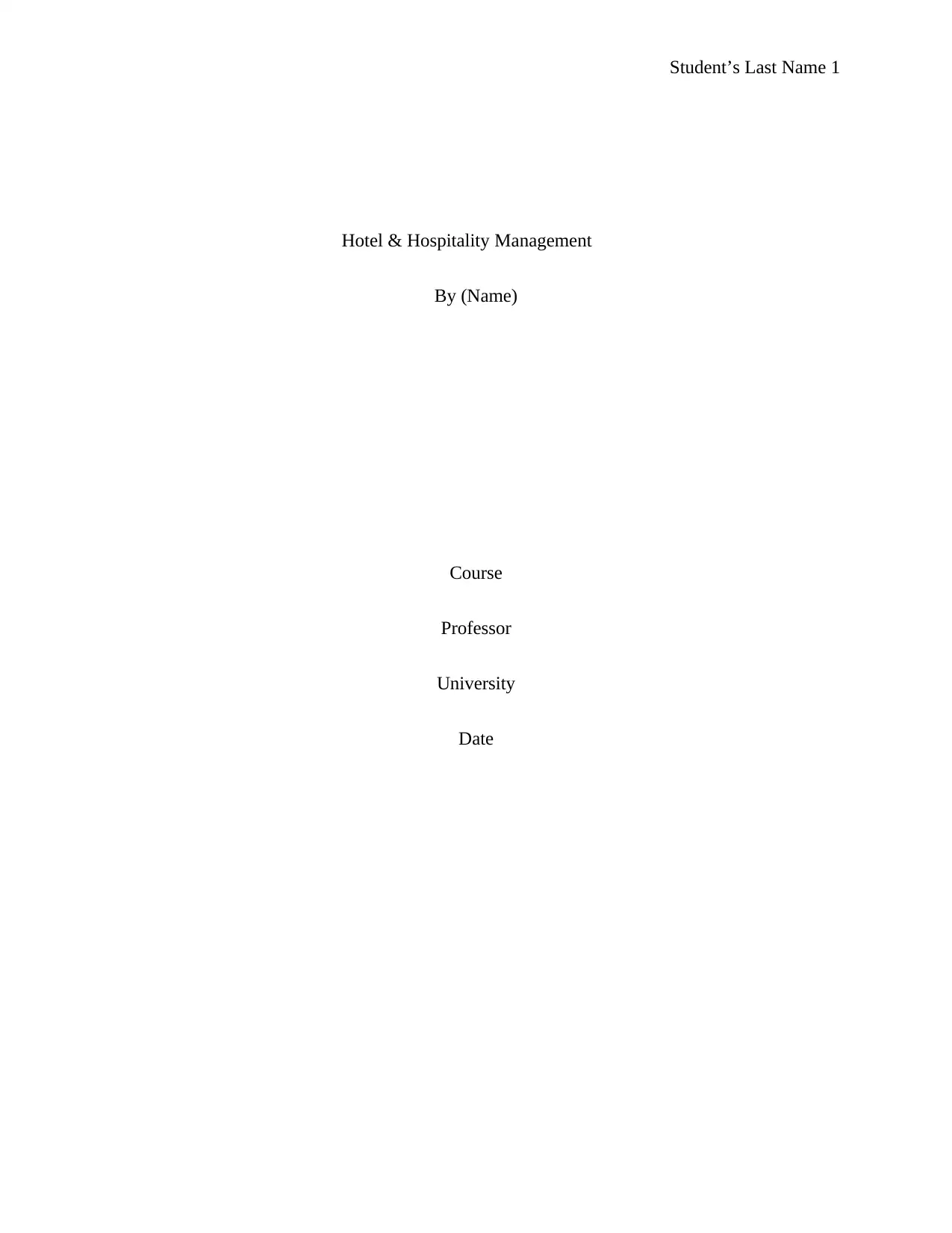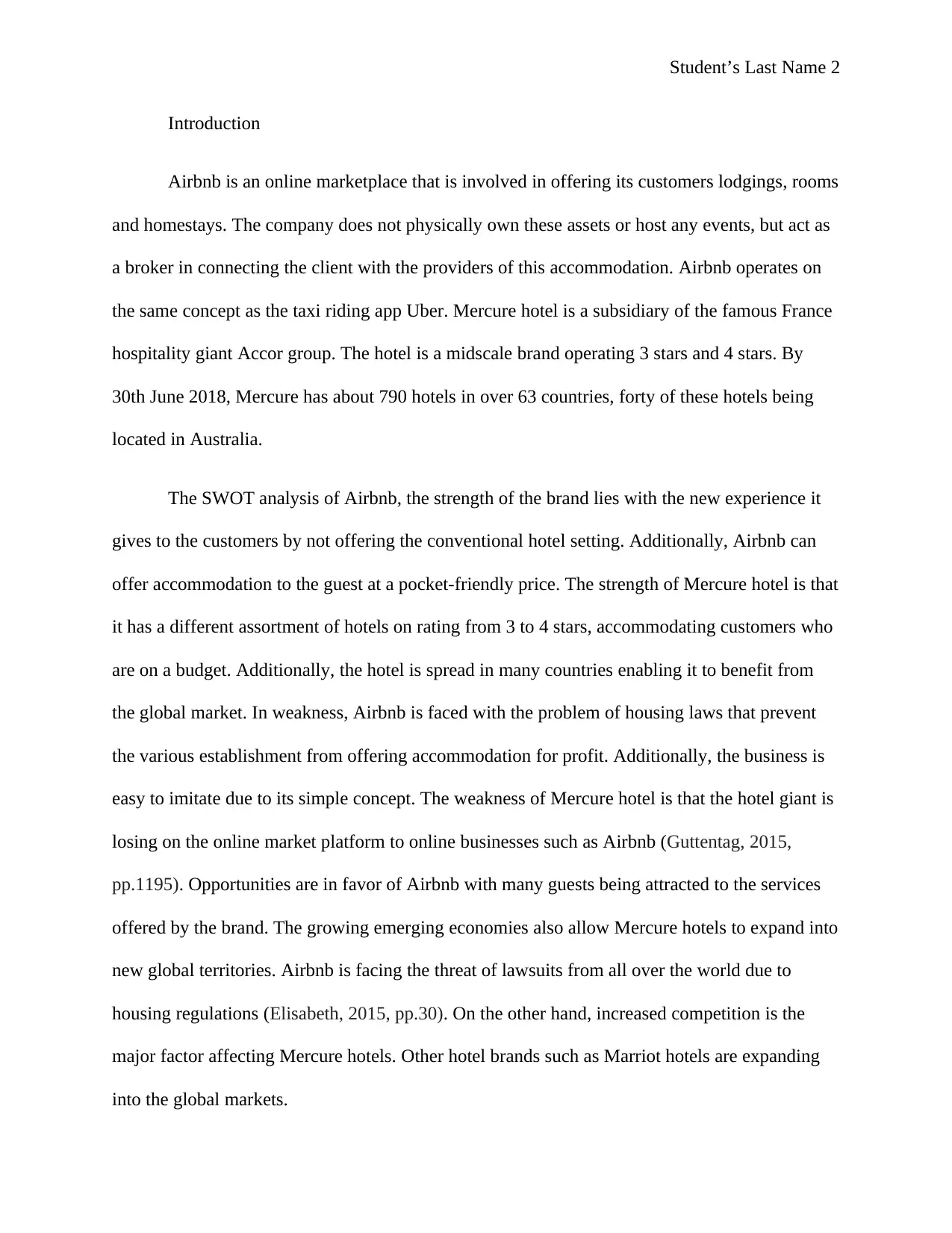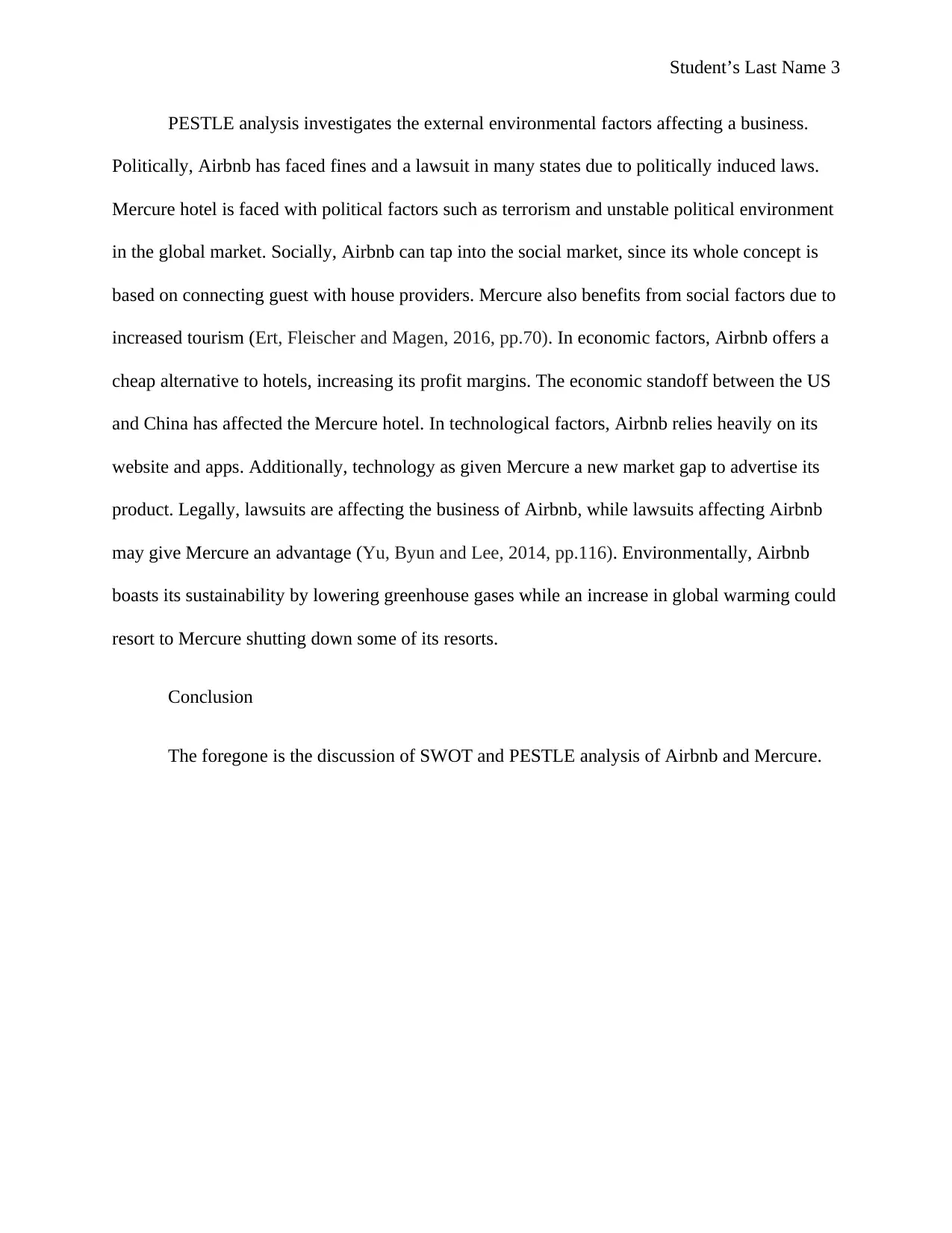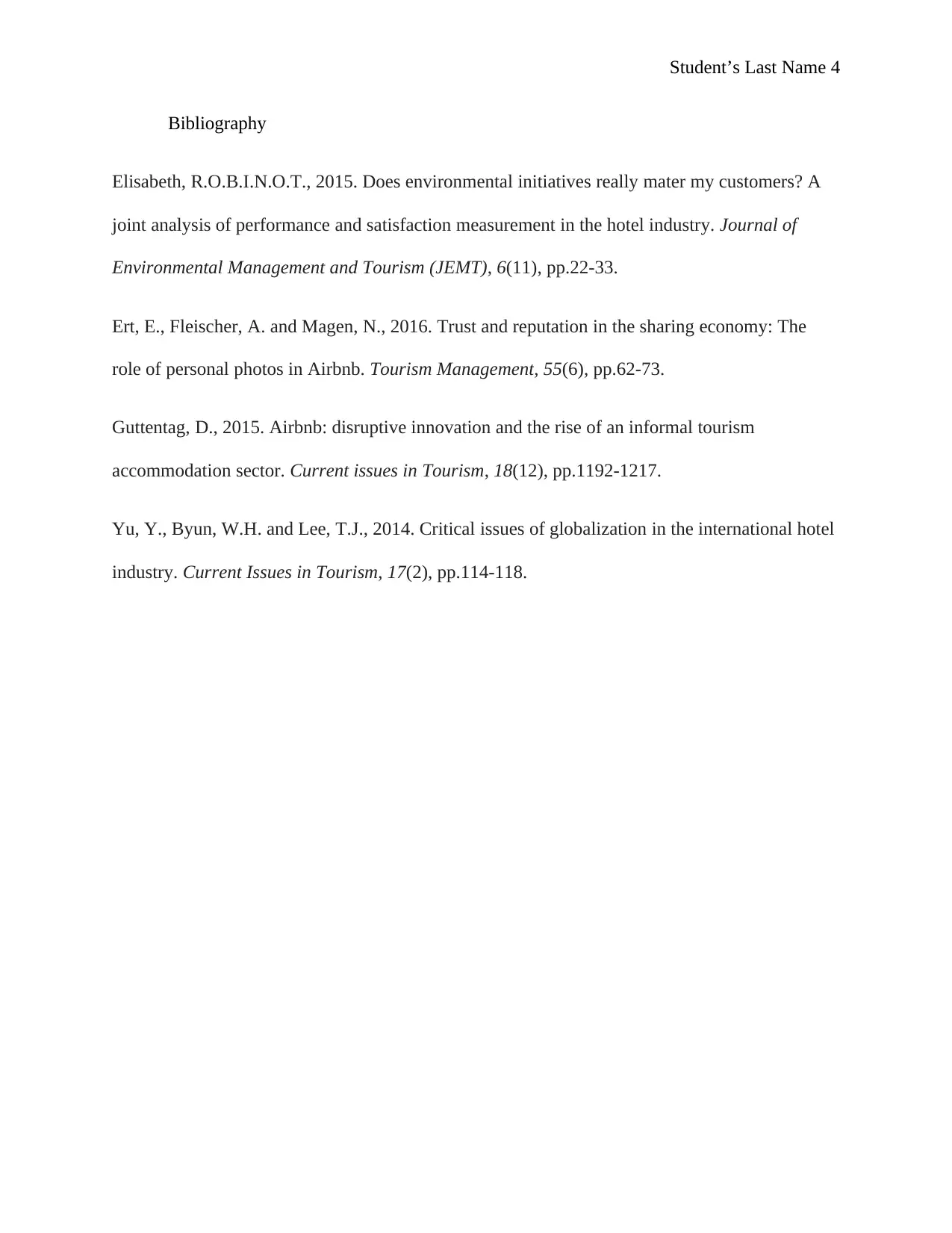Business Analysis: Airbnb and Mercure Hotel - SWOT & PESTLE
VerifiedAdded on 2022/10/01
|4
|756
|202
Report
AI Summary
This report presents a comparative analysis of Airbnb and Mercure Hotels, employing SWOT and PESTLE frameworks. The introduction outlines Airbnb's role as an online marketplace for accommodations and Mercure's position as a midscale hotel brand within the Accor group. The SWOT analysis highlights Airbnb's strengths in offering unique experiences and affordable prices, while Mercure's lies in its diverse hotel portfolio and global presence. Weaknesses for Airbnb include housing law challenges and ease of imitation, while Mercure faces competition from online platforms. Opportunities for Airbnb stem from growing guest interest and emerging economies, and for Mercure from global expansion. Threats include lawsuits for Airbnb and increased competition for Mercure. The PESTLE analysis examines political, social, economic, technological, legal, and environmental factors affecting both businesses, such as political regulations, social trends in tourism, economic impacts, technological reliance, legal challenges, and environmental sustainability. The report concludes by summarizing the key findings from both analyses, providing insights into the competitive landscape and external factors influencing the two companies.
1 out of 4











![[object Object]](/_next/static/media/star-bottom.7253800d.svg)